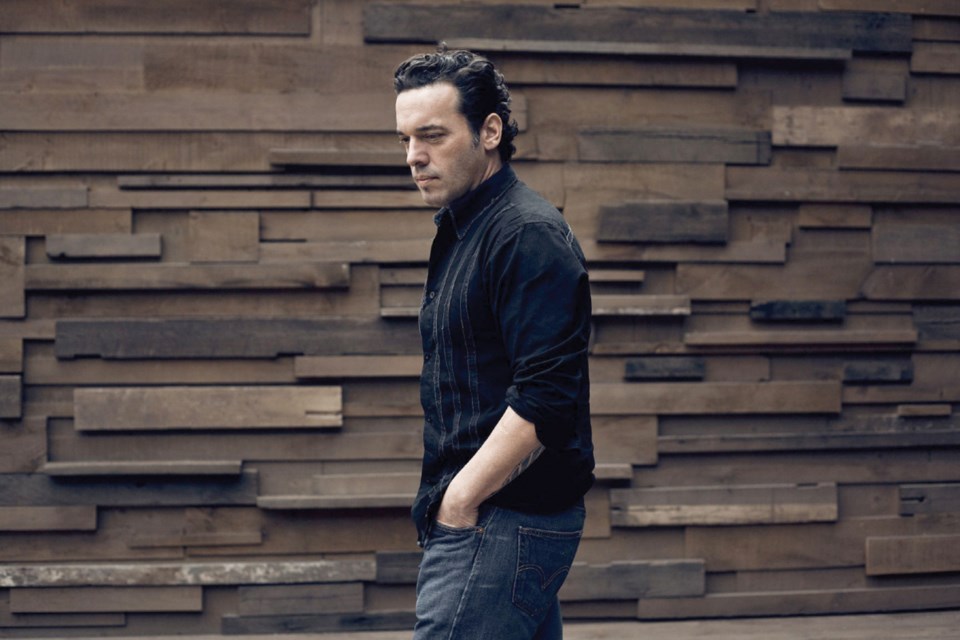An afternoon with Joseph Boyden, Thursday, Aug. 4, 4 to 5 p.m. at John Lawson Park in West Vancouver. Part of the Harmony Arts Festival’s Readings in the Park
program. harmonyarts.ca
She’s just watched her father die.
A Jesuit with wolf’s hair on his face and rotting-meat breath leans over the young Iroquois girl – and then she sees it.
The likeness of Jesus Christ swings around the Jesuit’s neck. In that likeness she sees her father lying in the snow with his arms outstretched and a circle of blood around his head. She sees him as alive.
She tries to kiss her father but he swings away.
It’s difficult to imagine anyone other than author Joseph Boyden crafting such a striking intersection between Canada’s First Nations people and the missionaries hell-bent on converting them.
Boyden describes himself as having “mixed blood,” not only because he is of Irish, Scottish and Anishinaabe descent, but because of the double life he’s lead.
He had a “very Catholic” upbringing but credits the Cree people of the western shore of James Bay and in Attawapiskat for giving him his writing career.
Coming out of the University of New Orleans, Boyden had a notion he might inherit the stream-of-Benzedrine-and-consciousness mantle vacated by Jack Kerouac, and was even plugging away on a “really bad” manuscript called Motorcycle Boy. All that changed when he went to James Bay and saw plastic sheeting being used for windows and homes without running water. It was isolated geographically but also politically and socially. But for Boyden, there was abundance amidst the poverty.
“The discombobulation for me was how amazing these people were at the same time and how just full of life and laughter they were.”
“If I hadn’t have gone up to James Bay to teach for those couple years, I don’t think I’d be the writer that I am now.”
The effect was nearly instantaneous. Instead of being damned with the faintest of praise and criticism at writing workshops, he saw readers moved by short stories populated by characters who might have been romantic but were never romanticized.
“Any kind of romanticization that I might have been prone to … was dashed when I moved up to James Bay and I saw the hard, cold reality of living conditions,” he explains.
While his stories sometimes stride into the minefield of Canadian history, Boyden always has the same readers in mind.
“First and foremost, it’s my family,” he says. While he doesn’t write to educate, Boyden says he harbours a hope his readers might come away from his books with a little more knowledge, or even with some anger.
“If I’m writing and everyone is happy … then I’m doing something wrong,” he says.



